Voting. It’s one of the most important and inalienable rights that we enjoy as Americans, one that previous generations have fought and even died for, and one that helps to define us as citizens and as a nation. But it’s also under attack, and has been since the moment our country came into being. These 10 books will help you to learn more about why your vote matters, and how to make sure that it continues to matter, in spite of the forces arrayed against you.
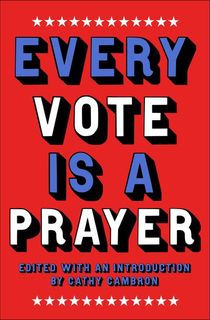
Every Vote Is a Prayer
Senator Raphael Warnock once said, “A vote is a kind of prayer about the world we desire for ourselves and our children.” That quote serves as the backbone of this inspiring book that will “reinforce your faith in democracy” (Des Moines Register) through collected writings and speeches on the subject from everyone from Dwight Eisenhower to Amanda Gorman, Martin Luther King, Jr. to Eleanor Roosevelt, Abraham Lincoln to Beyonce, and many more besides.
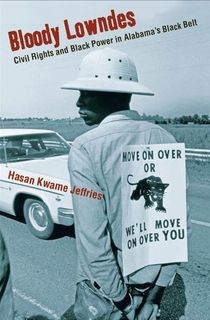
Bloody Lowndes
Before the Black Panthers, there was the Lowndes County Freedom Organization. The LCFO formed in 1966 in predominantly Black, rural Lowndes County, Alabama, where most of the adult population was left off the voting rolls due to a long history of voter intimidation and disenfranchisement. Taking as its symbol a snarling black panther that would soon become familiar nationwide, the LCFO began a radical experiment in democracy that changed voting forever and yet has been largely obscured by subsequent history, until the publication of this heavily researched, award-winning book.
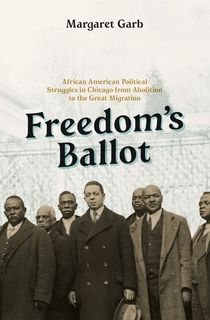
Freedom's Ballot
“In a masterful work that reveals the beauty of the historian’s craft” (Earl Lewis, president of the Andrew W. Mellon Foundation), Margaret Garb traces three generations of Black political activism in Chicago following the Civil War. The result is “that rare book that adds something new to our national conversation about race, cities and America, for scholars and general readers alike” (Chicago Tribune) and an “important contribution to the growing body of literature on African American political development” (Journal of American History).
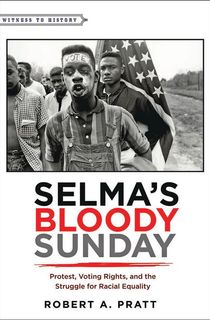
Selma's Bloody Sunday
On March 7, 1965, six hundred protestors began a famous march from Selma, Alabama to the state capital in Montgomery—a march that was doomed to meet violent resistance on the Edmund Pettus Bridge, where Alabama state troopers waited with batons and tear gas. In a book that is unfortunately timely today, Robert A. Pratt offers a “fresh look at this historical crossroads which marked the culmination of the Civil Rights Movement” (Patricia Sullivan, author of Justice Rising), and a lens through which we can view modern debates about who should and shouldn’t be allowed to vote.
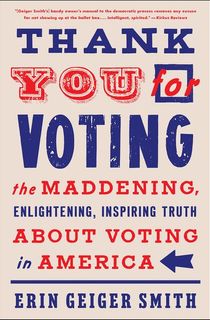
Thank You for Voting
One part history of voting rights in the United States, one part instruction manual for voters—and for energizing and mobilizing those who unfortunately sit the process out—“this is an excellent resource for first-time voters and activists hoping to motivate young people to get to the polls” (Publishers Weekly). It’s also a great primer for the voting process for anyone, whether you’re casting your first ballot or your fiftieth, breaking down complex realities of America’s electoral system into easy-to-understand formats that anyone can grasp.
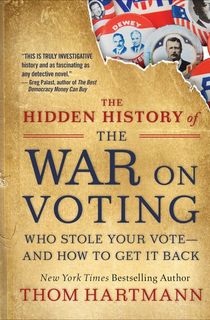
The Hidden History of the War on Voting
Booklist writes that, “Anyone who is seriously concerned about the survival of American democracy will want to read this book and apply its lessons.” Popular progressive radio host Thom Hartmann explores voting—and the way that disenfranchisement is a tool used by certain factions to maintain power—in this installment of his bestselling Hidden History series. The result is an “engaging, brutally honest, and meticulously documented book” that is a “must-read for every American” (David Korten, author of When Corporations Rule the World).
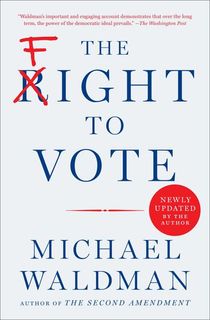
The Fight to Vote
Michael Waldman is president of NYU’s Brennan Center for Justice, and his “important and engaging” (Washington Post) new book not only traces the history of voting in America but also “urges citizens to find a way to celebrate democracy and reinvigorate political engagement for all” (Kirkus Reviews). Through careful research and “amusing anecdotes” (Buffalo News), Waldman shows how voting rights have always been under fire, and how we can find a way forward in a world where our fundamental rights are under attack.
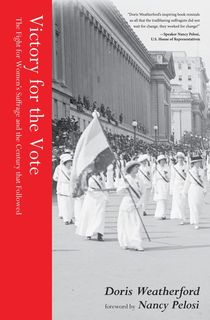
Victory for the Vote
Women in the United States did not have the right to vote until 1920, and even then it came only after a hard-fought campaign for women’s suffrage that began with the Seneca Falls Convention of 1848. With a foreword by Nancy Pelosi, this Sarton Women’s Literary Award-winning book “traces the philosophical roots of the Seneca Falls convention to the 17th century and women who defied the dominant religious leadership in the nascent American colonies” (Publishers Weekly) to present a compelling history of women’s suffrage—and the challenges that still face women in America today.
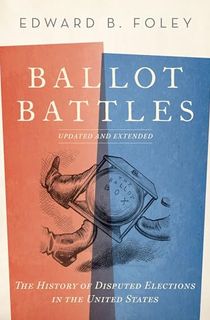
Ballot Battles: The History of Disputed Elections in the United States
Originally written to describe the 2000 presidential race between George W. Bush and Al Gore, the problems outlined in Edward Foley’s book—which argues that America has no good system for determining the results of close or contested elections—have only become more glaring in the years since, especially in the wake of the violent 2020 election, which former president Donald Trump refused to concede as his supporters stormed the capital. In a survey of electoral politics from a rigged gubernatorial election in 1792 to the 2000 race between Bush and Gore, Foley outlines how we came to this point, and what it might take to move forward.

One Person, One Vote
One of our most fundamental assumptions in the United States is that every vote counts. However, gerrymandering—the manipulation of political districts in order to obtain a desired electoral outcome—ensures that this often isn’t the case. In fact, it’s one of the biggest challenges facing the modern American voter, and it shapes everything about our political and civic lives. In this “dense yet entertaining” (Publishers Weekly) book, Nick Seabrook “makes a potentially dry, wonky subject accessible and engaging for a broad audience” (New York Times).
This post is sponsored by Open Road Media. Thank you for supporting our partners, who make it possible for The Archive to continue publishing the history stories you love.


